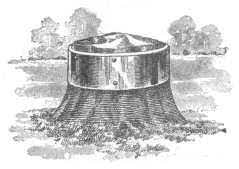BreadOfLife
Well-Known Member
- Jan 2, 2017
- 21,653
- 3,590
- 113
- Faith
- Christian
- Country
- United States
Ahhhh – now we’re getting somewhere.Sure,
-1-2 Maccabees. (3 and 4 Macc were rescinded by later canonical lists prior to Trent)
-1-4 Esdras. (same deal here)
-Tobit
-Wisdom of Solomon
-Baruch
-Additions to Daniel (Song of the three children, Bel and the Dragon, Susanna)
-Ecclesiasticus
-Epistle of Jeremiah
-Judith
-Additions to Esther
-Prayer of Manasseh
-Psalm 151
At no point were these books ever considered canonical by the Jews. They were never included in the traditional 22 book listed by ancient Jewish writers and were never laid up in the Temple. Nor did they make one's hands unclean.
Roger Beckwith observes:
Accordingly, in chapter two the developing concept of Scripture, beginning in the Old Testament itself, was traced, attention being drawn to the importance of sacred collections at shrines, especially at the Jerusalem Temple. Then the evidence about particular books of Scripture was assembled, and it was found that, at least from the second century bc onwards, and down to the first century ad, there is a mass of remarkably uniform evidence for the scriptural status of most of the books belonging to the present Hebrew Bible.
Beckwith, R. T. (1985). The Old Testament Canon of the New Testament Church and Its Background in Early Judaism (p. 435). SPCK.
Time for a History Lesson . . .
The Seven Deuterocanonical Books that were ejected from the OT Canon by your Protestant Fathers WERE part of the open Jewish Canon of the first century. That is, up to and throughout the life of Jesus on earth. There are some 200 references, to these Books on the pages if the New Testament.
The Jewish Canon was not closed until the 2nd century.
After the destruction of Jerusalem, a group of Rabbis established a rabbinical school in the Jewish city of at Jabneh (or Jamnia). It became center for Jewish political and religious political thought. Because the Temple had been destroyed in 70 AD – this school led by Rabbi Akiba ben Joseph (A.D. 37-137) redefined certain aspects of Judaism until the Temple could be restored.
One of the things discussed was use of the Greek translation of the Old Testament (the Septuagint) by early Christians.
They decided to eject 7 Books (and portions of Esther and Daniel) that they felt were “uninspired”. They provided a new Greek translation because the early Christians were converting the Jews using the Septuagint, which was compiled about 200 years before the birth of Christ. According to historical sources, the rabbinical gathering at Jabneh was not even an "official" council with binding authority to make such a decision. It can be clearly shown that Jesus and the Apostles studied and quoted from these 7 Books. In the New Testament, we see almost 200 references to them.
The main advocate for removing the 7 Deuterocanonical Books was Rabbi Akiba, who was also known for proclaiming that a man named Simon Bar Kokhba was the “real” Messiah during the 2nd Jewish Revolt (circa 132 AD). It was during THIS time that the Jewish Canon had still been an OPEN Canon during the life of Christ was closed.
So, your Protestant Fathers chose to go with a POST-Christ, POST-Temple Canon of Scripture that was declared by a FALSE Prophet (Akiva) who proclaimed a FALSE “Christ” (Kokhba).


